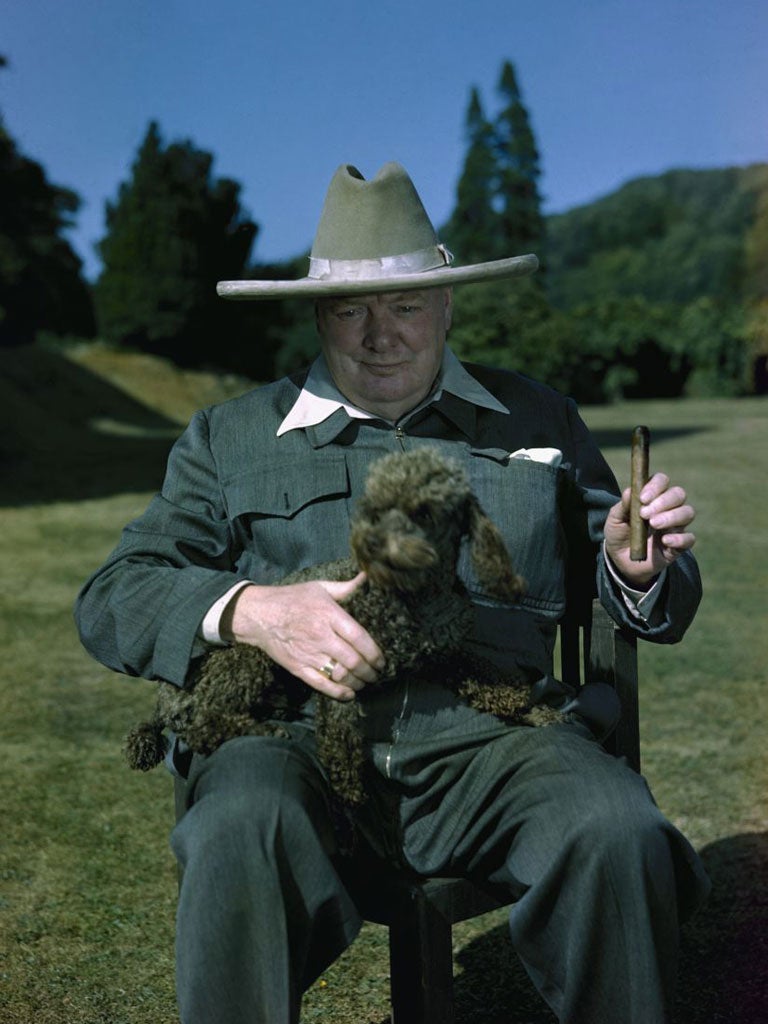Mr Churchill's Profession: Statesman, Orator, Writer, By Peter Clarke
Adventures of a hack author who composed his nation's destiny

Your support helps us to tell the story
From reproductive rights to climate change to Big Tech, The Independent is on the ground when the story is developing. Whether it's investigating the financials of Elon Musk's pro-Trump PAC or producing our latest documentary, 'The A Word', which shines a light on the American women fighting for reproductive rights, we know how important it is to parse out the facts from the messaging.
At such a critical moment in US history, we need reporters on the ground. Your donation allows us to keep sending journalists to speak to both sides of the story.
The Independent is trusted by Americans across the entire political spectrum. And unlike many other quality news outlets, we choose not to lock Americans out of our reporting and analysis with paywalls. We believe quality journalism should be available to everyone, paid for by those who can afford it.
Your support makes all the difference.Shortly after the end of the Second World War, "Tommy" Lascelles, private secretary to King George VI, persuaded Winston Churchill to accept the Order of Merit. Churchill, with a characteristic mixture of vanity and impish humour, asked whether he owed the award to his achievements in the political or the literary world. Lascelles replied that he would let people work that out for themselves.
Of course, Churchill's literary achievements would never have earned him the Order of Merit, let alone the Nobel Prize for literature, if he had not also been Britain's greatest wartime prime minister. All the same, writing – journalism, history, autobiography – mattered to Churchill. For a start, it paid the bills. His constant scramble for money was often undignified. As a young cavalry officer, he resorted to Indian money lenders: "most agreeable, very fat, very urbane, quite honest and mercilessly rapacious". On a lecture tour of America, he performed in private houses "like a conjurer". The purchase of a large country house at Chartwell in Kent 1924 was crucial to his literary career in two senses. It provided a place in which research assistants could gather to staff "the word factory", but the need to pay for the house also forced him to keep writing at a frenetic pace. In the late 1930s, Churchill's earnings from his pen were 30 times greater than his parliamentary salary.
Like many compulsive writers, Churchill had a compulsive need to be noticed. His father, a meteor who flashed across the late-Victorian political world, once remarked that politicians were now advertising themselves like "Holloway's pills or Coleman's mustard". The young Winston grew up knowing that he needed to turn himself into a brand name but also desperate to attract attention. After having pointlessly exposed himself to enemy fire when a war reporter, he wrote: "given an audience there is no act too daring or too noble".
Clarke is particularly interested in Churchill's History of the English-Speaking Peoples: published in the 1950s, but on Churchill's mind for 20 years. The idea of the Anglophone world always mattered to Churchill and he was one of the speakers at the foundation of the English-Speaking Union in 1918. Unlike many men of his age and class, he could not really express himself in any language except English. Lord Curzon was capable of giving an impromptu speech in Latin.
Perhaps it was also because of the need – perceived during the First World War – to knit Britain, its settler dominions and the US together. This was an alliance in which "English-speaking" sometimes sounded suspiciously like a synonym for "white". Clarke insists that Churchill was "never an Anglo-Saxon racialist in the genetic sense". In one sense, this is true. His life revolved around alliance with the French. All the same, race played a large role in his thinking. Even before the First World War, he talked in terms of "Russian power, the yellow races, the Teutonic alliance and the English-speaking peoples". The choice of words is interesting, as are the quite substantial sections of humanity excluded. Anyone reading his Iron Curtain speech – with its reference to the "strong parent races of Europe" – should remember that it was delivered in Missouri, a place where racial segregation was ruthless enforced.
This book has many virtues. It ranges widely, draws on great erudition and is often written with panache. However, it also a rather ramshackle work: neither a clear synthesis nor an original piece of research. I got the sense of a book knocked off rather quickly with an eye on the appeal that the Churchill name has in the American market, and that Clarke was relying too much on his reputation. His book is, in short, rather like many of Winston Churchill's.
Richard Vinen's most recent book is 'Thatcher's Britain' (Pocket Books)
Join our commenting forum
Join thought-provoking conversations, follow other Independent readers and see their replies
Comments